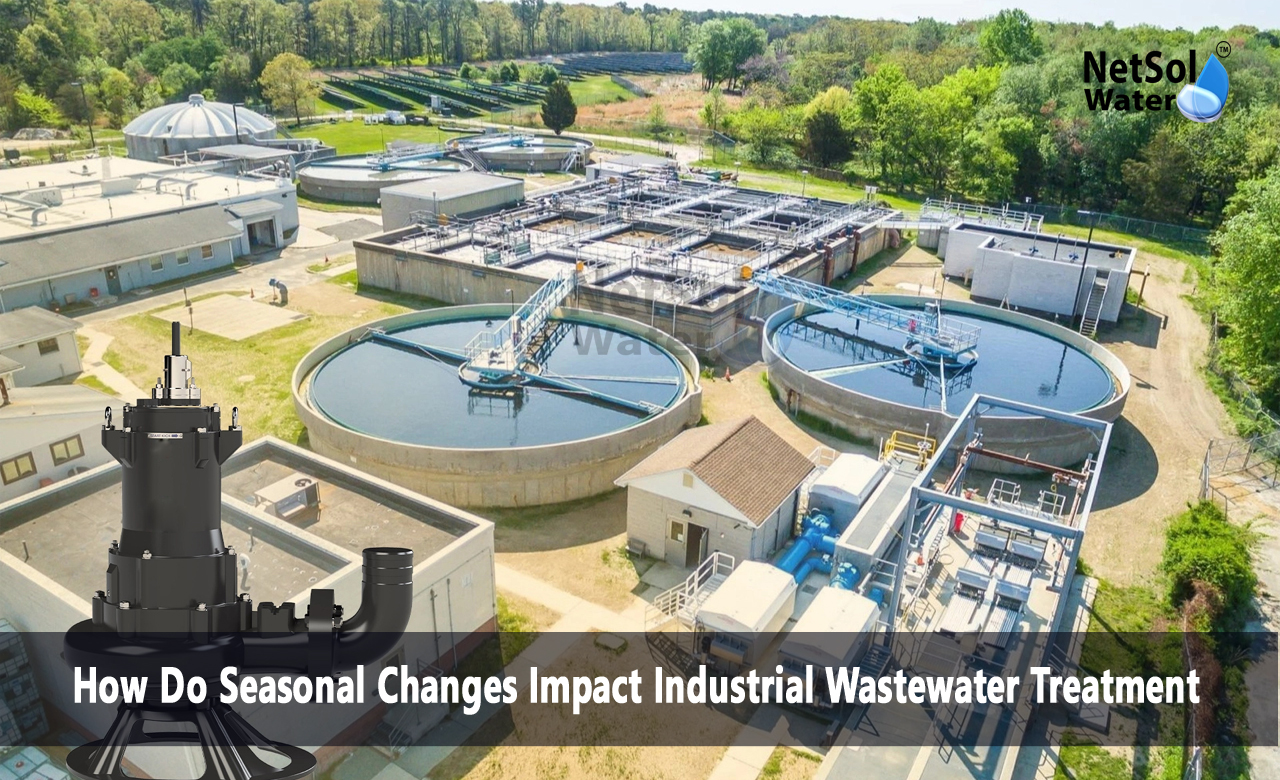How Do Seasonal Changes Impact Industrial Wastewater Treatment?
Seasonal changes play a major role in how industries treat wastewater. Every season brings its own set of challenges that affect treatment systems. In winter cold water slows down processes and in summer high temperatures push biological reactions beyond limits. Rainfall in spring and autumn adds extra water that mixes with waste. These shifts in temperature and volume create challenges that the treatment process must overcome. It becomes important to adjust the operations of treatment plants to handle these changes. Seasonal variations impact how impurities break down. The treatment process must work faster at times and slower at others. Industries must pay close attention to these shifts in nature to protect water quality. Many companies look for ways to manage these changes well. Netsol Water is known as a leading manufacturer in this field, and it has expertise that helps industries deal with seasonal shifts. Netsol Water stands out as an effluent treatment plant manufacturer that delivers reliable systems. The solutions adapt to changes in the environment and help industries stay within safe limits.
Impact of Temperature Changes on Treatment Processes
Temperature changes affect chemical reactions and biological activity. Let us have a look at some details.
Temperature Effects on Chemical Reactions
When cold air makes its way into the treatment system during winter the chemical reactions slow down. Processes such as oxidation slow down as well. Low temperatures reduce the efficiency of the reaction. This may result in impurities staying in the water for a longer period. The treatment system must adjust its chemical dosage. This change helps to maintain the reaction speed even when the temperature drops.
Temperature Effects on Biological Activity
The treatment process uses bacteria to break down waste. Cold weather slows the growth of these organisms. This slow growth means that the breakdown of organic matter also slows down. In contrast high temperatures speed up the metabolism of bacteria. However high heat can stress the system and reduce the ability of bacteria to work properly. The operator must watch the system closely during these periods. Adjustments such as the use of specialized bacteria may help. In this way the treatment process stays on track throughout the season.
Effects of Rainfall and Storm Events
This subtopic shows how rainfall and storm events affect treatment plants. Rain events increase the volume of water that mixes with waste. Let us have a look at some details.
Increase in Flow Volume
During heavy rains the treatment plant receives a large amount of water. This extra water dilutes the wastewater and changes the treatment process. The dilution may cause a delay in the breakdown of pollutants. A sudden increase in water volume challenges the capacity of the system. Operators must adjust the speed of the treatment process to account for these changes. Increased water flow demands additional capacity and flexible operation.
Impact on Pollutant Concentration
Rainfall often brings extra sediments into the water. These sediments add to the pollutants that the system must treat. The presence of extra solids may slow down the chemical and biological processes in the plant. The treatment process must work harder during storm events. Operators must monitor the water quality closely. They may need to add extra chemicals to help with the process. The goal is to ensure that the treated water meets the required quality standards.
Variation in Wastewater Composition
Changes in Industrial Output
During some seasons industries change their production levels. The amount of waste and its content vary with production shifts. Some seasons produce more waste while others produce less. These shifts impact the load on the treatment plant. The plant must adjust its operation to handle the changes. The treatment process must remain efficient during periods of high load and low load. This careful balance is important to protect water quality.
Influence of Natural Conditions
The natural environment changes the mix of contaminants in the water. For example, plants shed more leaves in autumn. This adds organic material to the water. In summer the water may pick up extra dust and pollen. These natural inputs add complexity to the treatment process. The system must remove these extra impurities along with the industrial waste. This task may require extra time and effort. Operators must plan ahead to meet the challenge during each season.
Conclusion
Seasonal changes impact industrial wastewater treatment in many ways. Temperature shifts slow or speeds up reactions and change the behaviour of bacteria. Rainfall increases water volume and changes pollutant levels. Natural changes alter the makeup of wastewater as industries also shift their output. These challenges call for flexible treatment systems that adjust quickly to environmental changes. Netsol Water stands as a leading manufacturer in this area. Their solutions prove the effectiveness of efficient systems. When looking for an effluent treatment plant manufacturer that adapts to seasonal changes please get in touch with Netsol Water.
Contact Netsol Water at:
Phone: +91-9650608473, Email: enquiry@netsolwater.com



